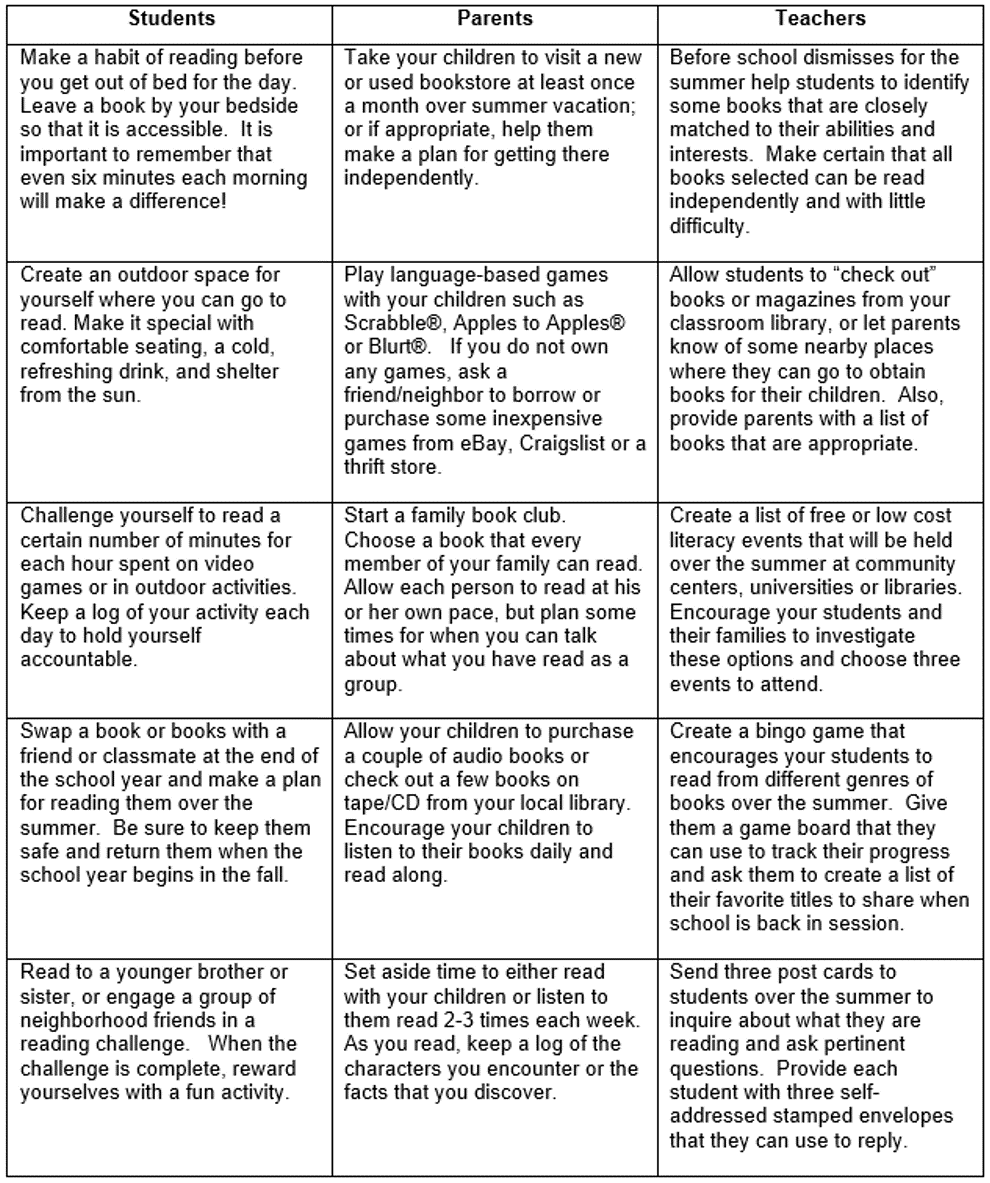Summer Days... Reading Ways!
As spring approaches and images of warm breezes, budding trees, and outdoor social activities beckon, the allure of isolated and reclusive hobbies wane. This is especially true for students who spend more than 1,200 hours between August and May focused on learning, and their mentors who spend considerably more time preparing for, planning, and facilitating the learning process. For these individuals, the end of the school year marks the beginning of an 8-10 week “brain break” from all things academia. While some may still choose reading as summer pastime, others will eagerly forsake it in lieu of other, high-spirted amusement.
Let’s not fool ourselves….setting aside time for recreation is important; and medical experts recommend that kids and adults alike get a minimum of 60 minutes of aerobic, muscle strengthening, and bone strengthening activity each day. For students however, increased physical movement and lengthy departures from intellectual activities can take its toll; and for many elementary and middle school students, long recesses from learning can lead to lapses in reading skills. Research shows that routine reading and exposure to print leads to easier phonological processing, increased reading fluency, growth in reading vocabulary, and subsequently better comprehension. While high expectations and calculated efforts by teachers at the beginning of the school year can help remediate the effects of summer deterioration, there are things that can be done prior to and during the summer months to reduce achievement gaps.
Here are some strategies that students, parents, and teachers can try:

New on the Blog
Helping Kids Build Empathy: A Skill That Strengthens Friendships, Classrooms, and Families
Empathy is one of the most important social-emotional skills children can learn. When kids understan...
6 Books to Help Handle Peer Pressure
Peer pressure is something every child will encounter at some point - whether it’s subtle encourag...
6 Books to Help Kids Navigate Friendship Fallouts
Friendship can be tough. These books help kids handle it. Written by school counselors and packed...
7 Key Steps to Building Self‑Determination for Success
Self‑determination plays a huge role in how we set goals, stay motivated, and bounce back when thing...
Magical Mindset at the Most Magical Time of the Year
For many families, the holidays are the most wonderful time of the year - a magical season filled wi...
Countdown to Winter Break: Helping Students Manage Behaviors
It’s the final stretch before winter break. Hallways and classrooms are buzzing with the anticipatio...






